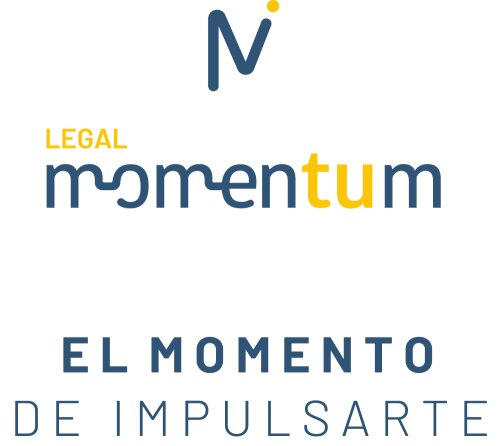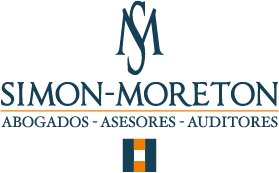Best Debt & Collection Lawyers in Salamanca
Share your needs with us, get contacted by law firms.
Free. Takes 2 min.
List of the best lawyers in Salamanca, Spain
About Debt & Collection Law in Salamanca, Spain
Debt and collection law in Salamanca refers to the legal rules and processes that allow businesses, individuals, and entities to recover money owed to them. Salamanca, as part of Spain, adheres to both national Spanish laws and regional practices regarding debt recovery. The legal system provides mechanisms for creditors to pursue unpaid debts while protecting debtor rights throughout the process. Whether you are facing difficulties collecting payments or have fallen behind in settling your debts, understanding how these laws work is crucial to ensuring fair treatment and compliance.
Why You May Need a Lawyer
Seeking legal advice in debt and collection matters can be important for several reasons. You might need a lawyer if you are:
- Owed money by a client, tenant, or business partner who refuses to pay
- Being pursued by creditors or collection agencies and face legal action
- Uncertain about your rights regarding payment schedules, interest rates, or contract enforcement
- A business owner looking to implement effective debt recovery strategies
- Involved in disputes over invoices, promissory notes, or loans
- Receiving threatening or abusive communication from collectors
- Facing enforcement proceedings, such as asset seizures or wage garnishments
A specialized lawyer provides guidance, representation, and negotiation skills to protect your interests, ensuring all actions comply with local laws and European consumer protection regulations.
Local Laws Overview
Debt and collection in Salamanca are regulated under Spanish law, primarily the Civil Code and procedural laws governing the recovery of unpaid debts. Key aspects include:
- Extrajudicial Procedures: Creditors are encouraged to seek payment through friendly negotiations and formal requests (burofax) before resorting to court action.
- Monitory Procedure: A fast-track judicial process for uncontested debts, allowing creditors to claim amounts owed through documentary evidence such as contracts or invoices.
- Enforcement: If a court judgment is made, creditors can request the seizure of assets or wages to satisfy the debt.
- Interest and Costs: Contracts may specify late payment interest. The law also allows for statutory interest and the recovery of legal costs in some cases.
- Consumer Protection: Consumers have specific protections against unfair contract terms and abusive collection practices under national and European law.
- Statute of Limitations: Debt claims in Spain are subject to time limits. For most civil debts, this period is five years from the due date.
- Data Protection: Collection activities must respect privacy regulations, especially regarding the management and sharing of personal data.
Frequently Asked Questions
What steps should I take if someone owes me money in Salamanca?
You should first try to resolve the matter amicably, sending a formal payment demand. If this fails, you may initiate a legal claim through the monitorio procedure, providing relevant documentation as evidence.
Can a creditor add interest and collection fees to the amount owed?
Interest and fees can be added if agreed upon in the original contract or if statutory late payment interest applies under Spanish law. Collection fees must be reasonable and not abusive.
What is the "monitorio" procedure?
It is a simplified judicial process for uncontested debts in Spain, allowing creditors to recover debts using documentary proof. If the debtor does not respond, the court may issue an enforcement order.
How long does a creditor have to claim a debt in Salamanca?
Generally, the limitation period for claiming most civil debts is five years from the date the debt became due.
What rights do debtors have against aggressive collection practices?
Debtors are protected against harassment, threats, and abusive practices. Complaints may be filed with consumer authorities if collection agents violate these rights.
What happens if I cannot pay my debts?
Failure to pay may result in legal actions, including court rulings, asset seizures, or wage deductions. However, debtors have the right to defend themselves and negotiate payment plans.
Can a debt be negotiated or settled out of court?
Yes, parties are encouraged to negotiate payment plans or settlements before or during any legal proceedings to avoid lengthy and costly litigation.
What documents are needed to claim a debt through court?
You will need contracts, invoices, payment reminders, or any written proof showing the debt exists and remains unpaid.
Are there organizations in Salamanca that can help with debt problems?
Yes, consumer protection offices (OMIC), lawyers, and non-profit organizations specializing in debt mediation can provide advice and assistance.
Can a creditor seize my salary or bank account for unpaid debts?
If a court judgment is issued, creditors may request the embargo (seizure) of salaries and bank accounts, within certain legal limits to protect essential income.
Additional Resources
People in Salamanca seeking debt and collection advice can consult the following:
- Oficina Municipal de Información al Consumidor (OMIC) - Local consumer office for advice on dealing with abusive collection practices
- Ilustre Colegio de Abogados de Salamanca - The local bar association, provides lawyer referrals and legal aid options
- Juzgados de Primera Instancia de Salamanca - Local courts for initiating debt recovery proceedings
- Asociaciones de Consumidores y Usuarios - Consumer organizations offering support and mediation
- Official Government Portals - Ministry of Justice and consumer affairs pages provide information on legal processes and rights
Next Steps
If you face debt and collection issues in Salamanca, start by gathering all relevant documentation regarding the debt. Try to resolve the matter directly with the other party whenever possible. If negotiations fail or you are unsure of your rights, consult a lawyer specializing in debt recovery or visit your local OMIC office for initial free advice. Acting early and seeking professional guidance ensures your interests are properly protected throughout the recovery or defense process.
Lawzana helps you find the best lawyers and law firms in Salamanca through a curated and pre-screened list of qualified legal professionals. Our platform offers rankings and detailed profiles of attorneys and law firms, allowing you to compare based on practice areas, including Debt & Collection, experience, and client feedback.
Each profile includes a description of the firm's areas of practice, client reviews, team members and partners, year of establishment, spoken languages, office locations, contact information, social media presence, and any published articles or resources. Most firms on our platform speak English and are experienced in both local and international legal matters.
Get a quote from top-rated law firms in Salamanca, Spain — quickly, securely, and without unnecessary hassle.
Disclaimer:
The information provided on this page is for general informational purposes only and does not constitute legal advice. While we strive to ensure the accuracy and relevance of the content, legal information may change over time, and interpretations of the law can vary. You should always consult with a qualified legal professional for advice specific to your situation.
We disclaim all liability for actions taken or not taken based on the content of this page. If you believe any information is incorrect or outdated, please contact us, and we will review and update it where appropriate.










